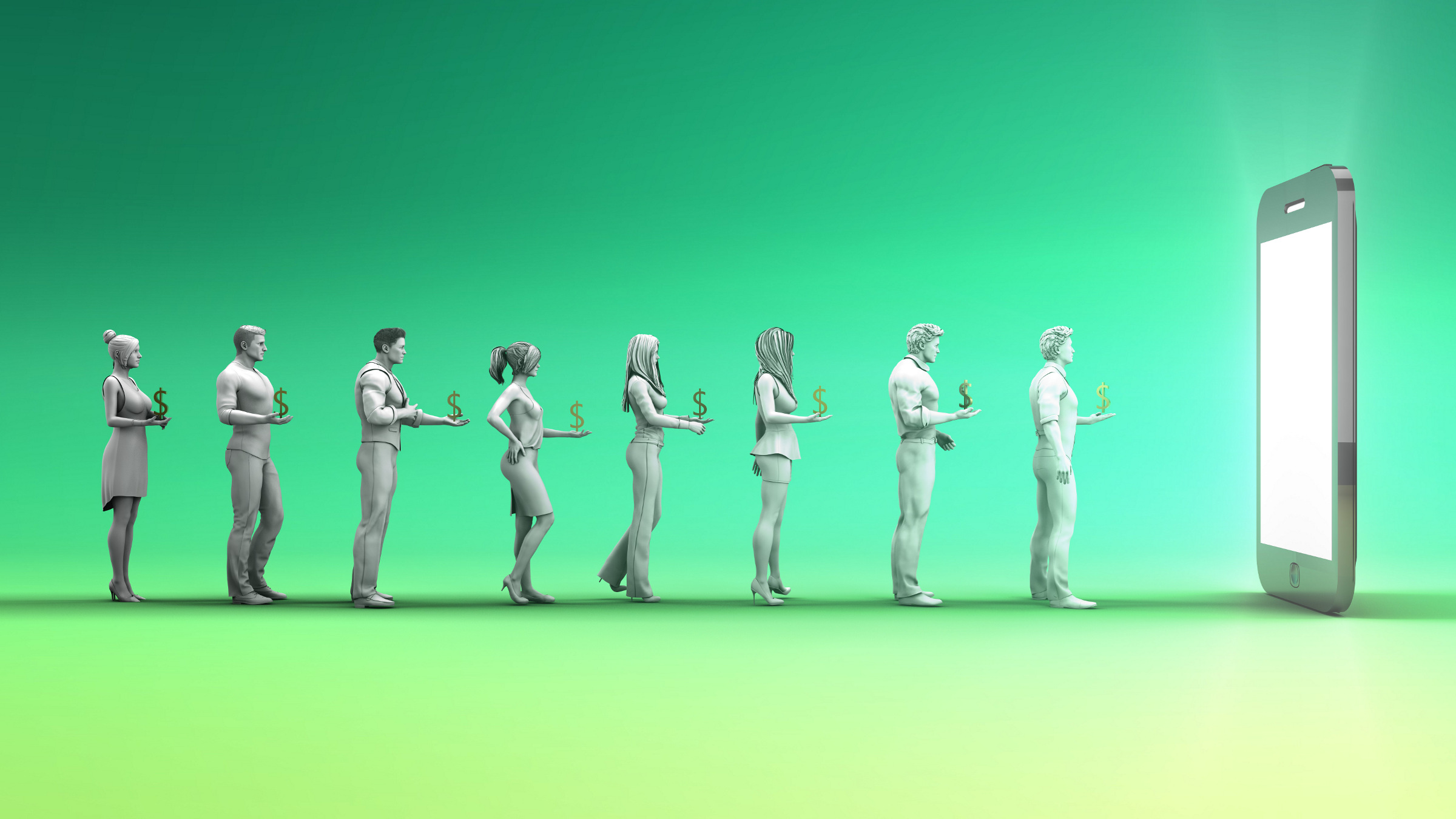
In the early days of smartphones, many people found it difficult to find and install software. Online app stores solved that problem and fundamentally transformed the software business. App stores serve as marketplaces to help users find software from various companies that can work alongside the operating systems and applications that come bundled with their smartphones as well as personal computers. They work by establishing a set of rules that govern platform access, user interfaces, compatibility, prices, payment procedures, quality, security, and intellectual property rights. As of 2021, the Google Play Store for phones and tablets using the Android operating system had approximately 3.5 million apps, while Apple's App Store for the iPhone and iPad had some 2.2 million apps.a PC software companies followed the lead of smartphone OS producers, which remain the largest owners of app stores.
These developments suggest how future legal decisions and government legislation could make operations more difficult for the app store owners.
App stores have also become a two-sided platform business in their own right. Apple alone earned some $20 billion from its App Store in 2020 (even though the majority of apps were free), with mobile games accounting for approximately 70% of iPhone app sales.11 One estimate is that Apple's App Store profit margins are as high as 78%.8 Producers have been paying a 30% tariff when they sell software licenses, upgrades, subscriptions, or virtual goods for video games through the Apple App Store, launched in 2008. Some developers have complained about these charges and Apple's terms of use.1 Yet the convenience and distribution power of the app stores have kept them as the primary way smartphone users access software and developers access users. Nonetheless, Apple's App Store has recently come under criticism and a legal challenge from Epic Games, a privately held software company valued at approximately $29 billion that makes Fortnite and other games.4
The Fortnite combat game has some 200 million users and is free, but players can buy V-Bucks (an in-game currency) to customize various items and purchase outfits and accessories as well as Battle Passes to unlock different rewards. An estimated 70% of players make these in-game purchases, which in 2019 totaled as much as $300 million per month.5 Epic claimed Apple has been exercising monopolistic control over the App Store not only by taking a 30% share of initial payments but also of "in-app" payments—upgrades and accessories users buy while playing the game. Apple, in turn, claimed Epic violated its terms of use prohibiting in-app purchases not through the App Store and banned Fortnite. Epic then sued Apple in August 2021, arguing users should be allowed to purchase upgrades or virtual goods directly (such as through the Epic Games Store—see https://bit.ly/3D4CCcb), presumably at a lower price and without Epic sharing the revenues. The case went to trial in May 2021 and an initial ruling came in September.
Epic launched another lawsuit in August 2021 against Google for similar practices in its Google Play Store and was joined by 36 U.S. states as well as the District of Columbia. Meanwhile, Japan and Korea introduced restrictions on Apple's App Store, mandating users be allowed to pay for apps or services through multiple payment systems. Other investigations of Apple's App Store and Google Play are under way in the European Union, the U.K., and India, in addition to the U.S. Department of Justice.11 There is also proposed legislation in the U.S. Congress (the Open App Markets bill) to force Apple and Google to open up their platforms to third-party app stores and the "side-loading" of applications from non-app store sources.7
The judge in the Epic Games vs. Apple case, Yvonne Gonzalez Rogers, issued a ruling that largely favors Apple. The judge focused her decision on the "mobile gaming transactions market," worth some $100 billion in revenues and accounting for 59% of total global gaming revenue.14 She concluded Apple's share of 55% was not high enough to qualify as a monopoly. Consequently, the judge allowed Apple to continue prohibiting third-party iPhone app marketplaces and in-app purchases and to charge the 30% commission.
Separately, Apple announced a legal settlement in August 2021 for smaller developers with revenues under $1 million (about 99% of U.S. iOS developers). They can pay only a 15% tariff and access a $100 million assistance fund. In addition, Apple will allow small developers to notify their customers, via email or other messaging, about alternative payment methods. Apple still prohibits them from notifying users of alternative payment methods from within their apps.10 But these developments suggest how future legal decisions and government legislation could make operations more difficult for the app store owners.
First, the judge said Apple can continue its restrictive App Store practices but her ruling only covers mobile games. This means future judicial or legislative actions may differ in how they treat app store sales of other software products and digital services.
Second, Apple's victory is only partial. The judge ruled that Apple was within its rights to set terms of use for the App Store and revoke Epic's development license for the App Store.1 But the judge also found that Apple violated California's Unfair Competition Law by prohibiting developers from informing users they could purchase software or upgrades outside the app. She ordered Apple to stop that practice within 90 days.6 This means that, in the future, Apple cannot prohibit application developers from notifying users of alternative payment methods through means such as email messages.
Third, the judge determined that Apple's market share of 55% was not in itself large enough to constitute monopoly power. Simply having a large market share—even over 90%—is not breaking the law, as we saw in the Microsoft antitrust trial.11 What is illegal is to abuse a dominant market position, such as by tying products in different markets together or restraining competition. However, if a future court rules that app stores are a single market, then Apple would have a 100% share for its iPhone, and this may well lead to restrictive regulation. Bottom line: Platform leaders still need to be very careful when they have high market shares.
Fourth, Apple may be more at risk of regulation than Google because the Android world is more open. There are many Android app stores in China, for example.13 Samsung also offers an Android app store for Galaxy phones. These alternatives are possible because the Android operating system allows users to "side-load" software—that is, to install "unknown apps" not from Google Play.9 By contrast, while it is possible to install apps on an iPhone without using Apple's App Store, this requires "jailbreaking" the software lock Apple has preinstalled and violates the iPhone warranty.12
What we need to do … is find a more equitable way to govern these marketplaces and share the wealth they are creating.
Fifth, Epic argued that a 30% tariff was an abuse of Apple's market position. The judge disagreed. But what is a fair price to charge for software and other digital goods, which have a marginal cost close to zero? Apple and Google have a lot of intellectual property invested in their app stores and consider them essential to their platform strategies and business models.3 App stores also have secure technology to track and process in-app purchases. Surely, companies are entitled to charge for the use of their investments and technology. But how much is too much? That remains unclear.
All these points reflect the tensions inherent in any successful platform business, which by definition relies on connecting two or more market sides and generating network effects between those sides. Smartphones and computers have little value without applications, and most of these come from third parties.3 Perhaps the platform companies should pay developers, rather than the other way around? But Apple and Google, as wealthy as they are, do not have the resources or creativity to pay for or develop themselves the millions of applications that independent software companies have produced. It also would be extraordinarily difficult for the platform companies to treat app producers as suppliers and write exclusive contracts with so many firms. And there is no easy way for users to search through millions of applications without some sort of marketplace and payment system.
Neither Apple nor Epic is happy with the court ruling, and both companies have filed appeals.2 However, Apple's decision to lower the tariff to 15% for smaller developers is a recognition it probably has charged too much and might have an even healthier ecosystem if it charged less. Apple might also follow Google's lead and allow side-loading of applications, though users cannot expect any guarantees of quality or compatibility. In conclusion, it seems clear app stores are here to stay and bring extraordinary value to platform companies, application developers, and users. What we need to do, though, is find a more equitable way to govern these marketplaces and share the wealth they are creating.



Join the Discussion (0)
Become a Member or Sign In to Post a Comment